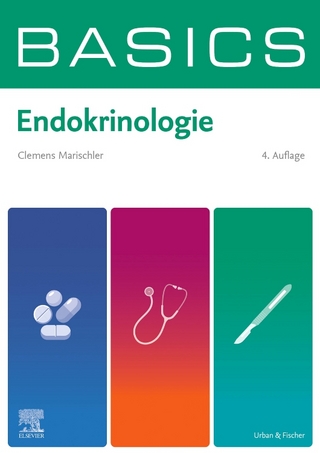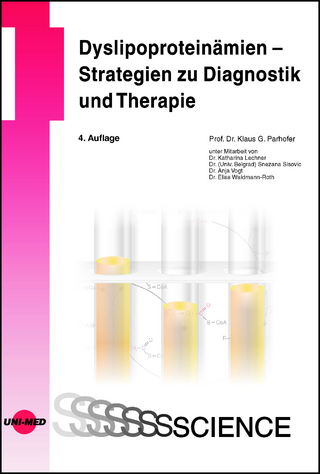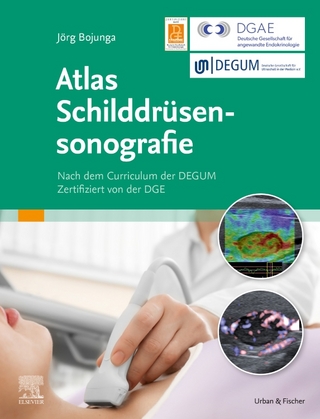
Reproductomics
Academic Press Inc (Verlag)
978-0-12-812571-7 (ISBN)
With this book Editors Jaime Gosálvez and José A. Horcajadas have provided researchers and clinicians with a strong foundation for a new era of personalized reproductive medicine.
Jose Horcajadas, PhD, is Associate Professor at the University Pablo de Olavide, Sevilla, Spain. Dr. Horcajadas is an expert in translational research with emphasis on human implantation. He has more than 50 publications in high-impact peer reviewed journals including The Journal of Endocrinology and Metabolism. For the past 3 years Dr. Horcajadas has been an active collaborator in the development of a three-dimensional endometrial culture system at The Jones Institute, which has resulted in several significant publications and presentations. Dr. Horcajadas has also presented at various national and international meetings. Professor Jaime Gosalvez is a permanent member of the Department of Genetics at the Universidad Autonoma of Madrid in Spain. He received his Ph.D. in Biology with specialization in Genetics in 1979. He teaches courses on Molecular Cytogenetics, Models and Evolutive Processes and Advanced Technologies for Biology. His research interests are in the areas of molecular cytogenetics with special emphasis on DNA structure and function. He is deeply involved in the analysis of different aspects of the DNA molecule in the sperm and their possible implications in male infertility, with special emphasis in human, other mammalian species and fish, as well as those clinical aspects of the male factor to achieve pregnancy. Dr. Gosálvez has published more than 250 original articles and 190 abstracts have been presented in different national and international meetings. He has published 15 book chapters in the area of cytogenetics and sperm quality assessment and has edited two books. He has been the Principal Investigator of more than 30 national and international competitive research applications, and he is co-author of two patents with world-wide protection.
1. Is the classic spermiogram still informative? How did it develop and where is it going?
2. Genetics variations and male infertility
3. Genetic Variations and Male Infertility
4. Carrier Screening for Inherited Genetic Disorders: A Review of Current Practices
5. TELOMERES IN GERMLINE AND EARLY EMBRYO- AN OVERVIEW
6. Human Protamine Genes’ Polymorphisms As A Possible Cause Underlying Male Infertility
7. Small RNAs present in semen and their role in reproduction
8. ALTERED TRANSCRIPTOMIC PROFILES ASSOCIATED WITH MALE INFERTILITY
9. Proteomics and metabolomics studies and clinical outcomes
10. Epigenetics, spermatogenesis and male infertility
11. Changes in DNA methylation related to male infertility
12. Non-invasive methods of embryo selection
13. Genetic selection of the human embryos: from FISH to NGS, past and future
14. Unraveling the causes of failed fertilization after intracytoplasmic sperm injection due to oocyte activation deficiency
15. The molecular signature of the endometrial receptivity: research and clinical application
16. The acquisition of the human endometrial receptivity phenotype: lessons from proteomic studies
17. Stem Cell Derived Spermatozoa
18. Computational approaches in Reproductomics
19. Year 2020: The “-Omics Technologies and Personalized Assisted Reproduction
| Erscheinungsdatum | 21.09.2018 |
|---|---|
| Verlagsort | San Diego |
| Sprache | englisch |
| Maße | 191 x 235 mm |
| Gewicht | 1020 g |
| Themenwelt | Medizinische Fachgebiete ► Innere Medizin ► Endokrinologie |
| Studium ► 1. Studienabschnitt (Vorklinik) ► Histologie / Embryologie | |
| Studium ► 2. Studienabschnitt (Klinik) ► Humangenetik | |
| ISBN-10 | 0-12-812571-3 / 0128125713 |
| ISBN-13 | 978-0-12-812571-7 / 9780128125717 |
| Zustand | Neuware |
| Haben Sie eine Frage zum Produkt? |
aus dem Bereich


